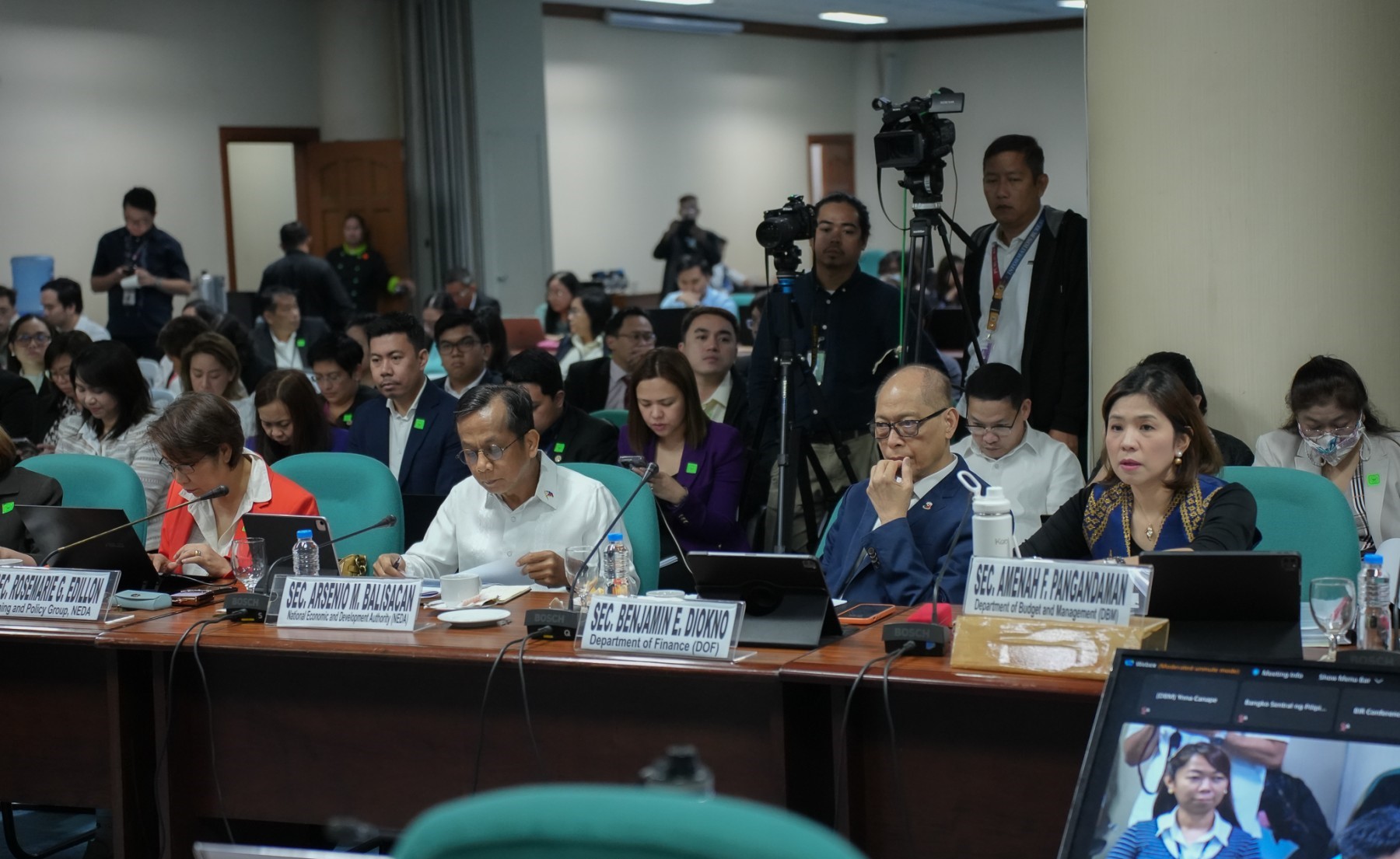Sex Scandal Cases In The Philippines 2025: Today's Shocking Update
Breaking News: The Philippines is once again at the center of a storm, but this time it’s not about typhoons or political drama—it’s about sex scandal cases. From high-profile personalities to ordinary citizens, these scandals have shaken the nation to its core. If you thought 2023 was wild, buckle up because 2025 is bringing even more chaos to the table.
Let’s be real here, folks. In today’s world, where every click, swipe, and message can go viral, privacy feels like a thing of the past. And when it comes to sex scandals, the Philippines isn’t exactly shy about making headlines. Whether it’s leaked videos, explicit messages, or public infidelity, these cases are rewriting the rules of what we consider shocking.
But why should you care? Because these scandals aren’t just entertainment—they’re a reflection of deeper societal issues. From consent violations to digital privacy concerns, these cases highlight the urgent need for change. So, grab your popcorn, but let’s dive into the juicy details while also learning something along the way.
Table of Contents
- Biography of Key Figures
- Recent Sex Scandal Cases in the Philippines
- Legal Implications and Ramifications
- The Social Impact on Victims and Perpetrators
- The Role of Social Media in Amplifying Scandals
- Privacy Laws in the Philippines: Are They Enough?
- Lessons Learned from Past Scandals
- Tips for Preventing Future Scandals
- Comparing the Philippines to Other Countries
- Conclusion: What’s Next for the Philippines?
Biography of Key Figures
Before we jump into the nitty-gritty of the scandals, let’s take a moment to understand who the key players are. In many of these cases, the people involved aren’t just random individuals—they’re celebrities, politicians, or influencers with massive followings. Here’s a quick rundown:
Bio Table
| Name | Occupation | Age | Scandal Details |
|---|---|---|---|
| Person A | Actor | 32 | Leaked intimate photos |
| Person B | Politician | 45 | Caught in an affair with a subordinate |
| Person C | Influencer | 28 | Shared explicit content unintentionally |
These figures represent just the tip of the iceberg. The stories behind their scandals are as complex as they are controversial. Let’s explore further.
Recent Sex Scandal Cases in the Philippines
In 2025, the Philippines has seen a surge in sex scandal cases that have captured the attention of both local and international audiences. One of the most talked-about cases involves a prominent politician caught in a compromising situation with a staff member. The fallout? Resignation, public outrage, and a renewed call for accountability.
- Tragic End Unveiling The Cause Of Sue Aikens Granddaughters Passing
- Meet The Segura Family Introducing Tom Seguras Siblings
Another case that made waves involved a well-known actor whose intimate photos were leaked online. The actor, who was already under scrutiny for past behavior, faced backlash from fans and colleagues alike. But here’s the kicker: the photos were shared without his consent, raising questions about digital privacy and consent laws.
Why These Cases Matter
These scandals aren’t just about gossip—they highlight serious issues like consent, power dynamics, and the misuse of technology. In a country where family values are deeply ingrained, these cases challenge traditional norms and spark important conversations.
Legal Implications and Ramifications
So, what happens when someone gets caught in a sex scandal? The legal implications can be severe. Under Philippine law, sharing explicit content without consent is considered a violation of privacy and can lead to criminal charges. But does the law go far enough?
- Cybercrime Prevention Act: This law addresses the unauthorized distribution of intimate images, but enforcement remains inconsistent.
- Data Privacy Act: Protects individuals’ personal information, but loopholes still exist.
- Revised Penal Code: Covers offenses related to libel and slander, which often accompany sex scandals.
Experts argue that while the laws are in place, implementation is where the system falls short. Victims often face stigma and retaliation, making it difficult for them to seek justice.
The Social Impact on Victims and Perpetrators
The social ramifications of sex scandals are far-reaching. For victims, the consequences can be devastating. Imagine having your most intimate moments splashed across social media without your consent. The trauma is real, and the road to recovery is long.
On the other hand, perpetrators often face public shaming and career setbacks. But here’s the thing: not all perpetrators are malicious. Some cases involve misunderstandings or miscommunication, highlighting the need for better education on consent and digital ethics.
How Society Responds
Public reactions to sex scandals vary widely. Some people rush to judge, while others offer support and empathy. It’s a delicate balance, and one that reflects the complexities of modern society.
The Role of Social Media in Amplifying Scandals
Social media has become both a blessing and a curse in the age of sex scandals. Platforms like Facebook, Twitter, and TikTok allow information to spread faster than ever before. But with great power comes great responsibility—or does it?
Here’s the thing: social media can amplify voices, but it can also silence them. Victims often find themselves attacked by trolls and haters, while perpetrators sometimes use the platform to defend themselves or downplay their actions.
Ways Social Media Can Help
- Raising awareness about consent and privacy laws.
- Providing a platform for victims to share their stories.
- Encouraging discussions about digital ethics and responsibility.
Privacy Laws in the Philippines: Are They Enough?
While the Philippines has laws in place to protect individuals’ privacy, many argue that they fall short in practice. The Cybercrime Prevention Act, for example, is a step in the right direction, but enforcement remains a challenge.
Experts suggest that stronger penalties and better enforcement mechanisms are needed to deter would-be offenders. Additionally, there’s a growing call for education on digital privacy and consent, especially among younger generations.
What Needs to Change
Here are a few suggestions for improving privacy laws in the Philippines:
- Stricter penalties for violators.
- Increased funding for law enforcement agencies.
- Public awareness campaigns on digital ethics.
Lessons Learned from Past Scandals
History has a way of repeating itself, and sex scandals are no exception. Looking back at past cases, we can identify patterns and lessons that can help prevent future incidents. For example:
- Consent is non-negotiable. Always ensure that all parties involved are comfortable and willing.
- Think twice before sharing intimate content. Once it’s out there, it’s out there forever.
- Respect others’ privacy, both online and offline.
By learning from the past, we can create a safer and more respectful digital environment for everyone.
Tips for Preventing Future Scandals
Prevention is key when it comes to sex scandals. Here are a few tips to help you stay safe in the digital age:
- Use strong passwords and enable two-factor authentication.
- Be cautious about who you share personal information with.
- Report any suspicious activity to authorities immediately.
Remember, prevention isn’t just about protecting yourself—it’s about creating a culture of respect and responsibility.
Comparing the Philippines to Other Countries
When it comes to sex scandals, the Philippines isn’t alone. Countries around the world face similar challenges, but their approaches to handling these cases vary. For example:
- In the United States, privacy laws are more robust, but enforcement remains a challenge.
- In Europe, the General Data Protection Regulation (GDPR) provides strong protections for personal data.
- In Asia, countries like South Korea have implemented strict laws against revenge porn.
By comparing the Philippines to other countries, we can identify best practices and areas for improvement.
Conclusion: What’s Next for the Philippines?
Sex scandals in the Philippines are more than just entertainment—they’re a reflection of deeper societal issues. From consent violations to digital privacy concerns, these cases highlight the urgent need for change. As a nation, we must come together to create a safer and more respectful digital environment for everyone.
So, what can you do? Start by educating yourself and others about consent, privacy laws, and digital ethics. Support victims and hold perpetrators accountable. And most importantly, remember that every action has consequences.
Now it’s your turn. Share your thoughts in the comments below, or check out our other articles for more insights. Together, we can make a difference—one click at a time.



Detail Author:
- Name : Katrine Hermiston
- Username : schneider.jacquelyn
- Email : braulio13@wisoky.com
- Birthdate : 1972-06-26
- Address : 729 Sanford Harbor Deshaunchester, NV 10418
- Phone : 1-347-972-6022
- Company : Mueller, Hyatt and Schmidt
- Job : Multi-Media Artist
- Bio : Et voluptatem odio dolorem et. Consequuntur iure quis nihil enim delectus ut. Modi aut enim eum enim. Aut ut magni dolorum ut autem ut.
Socials
facebook:
- url : https://facebook.com/jordi_official
- username : jordi_official
- bio : Maiores ipsa repellendus aut.
- followers : 1381
- following : 834
linkedin:
- url : https://linkedin.com/in/o'connellj
- username : o'connellj
- bio : Nam ut distinctio quia nobis et.
- followers : 4735
- following : 181